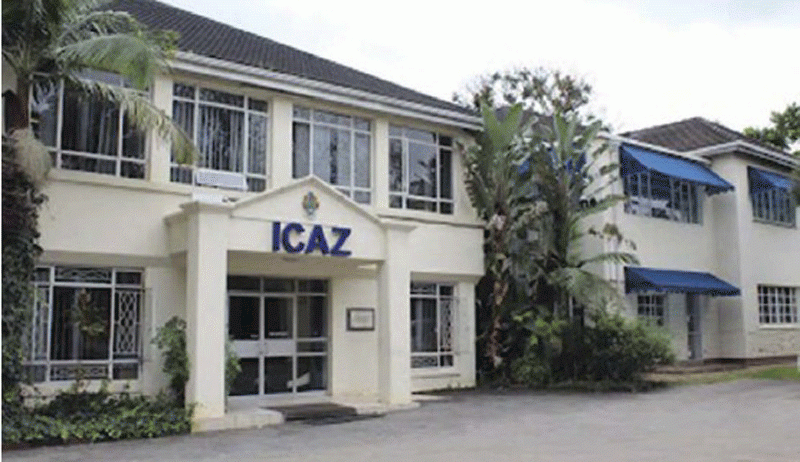
IN recent times, series of corporate scandals have unfolded, raising significant concerns about the independence of auditors and the reliability of their work.
While many of these occurred in jurisdictions far away from Zimbabwe, causing minimal financial repercussions to the nation, disturbingly, some of them have emerged right next door in South Africa, directly affecting Zimbabwean companies and audit firms.
As recently as 2016/17, concerns were raised over KPMG's independence in auditing the Gupta family businesses in South Africa.
Not too long after that, in 2019, Tongaat Hulett Limited, announced its decision to restate financial statements from 2011 to 2018, attributing the need for correction to accounting irregularities, including the overstatement of profits and inflated asset values.
This development brought to light the quality of audits conducted by Deloitte, who had been the company's auditors for an 80-year period, raising questions about their independence in the process.
Further away from Zimbabwe, a major scandal erupted when Wirecard AG, a German fintech company, announced the non-existence of a substantial amount of cash that was recorded on its balance sheet.
The revelation triggered scrutiny over the work performed by EY, the company's auditors, as they had issued unqualified opinions on the financial statements for several years.
More recently, PwC has come under investigation in Australia for allegedly utilising confidential government information to aid private clients in evading taxes, an act perceived by the government as a breach of trust.
- Currency crisis haunts listed firms
- Currency crisis haunts listed firms
- Zacc fails to account for expenses
- ‘Bribe-taking bigwigs stifle corruption war’
Keep Reading
The instances mentioned above, involving the "big 4" accounting firms — KPMG, EY, Deloitte, and PwC — have significantly heightened scrutiny on auditors from both regulatory bodies and users of financial statements.
While these scandals have sent shockwaves through the regional and global corporate landscape, the situation in Zimbabwe has remained relatively subdued.
However, does this apparent calm imply that audits conducted in Zimbabwe are free from concerns?
Are the current monitoring activities robust enough to identify any irregularities?
In this article, I delve into the regulations governing the accounting profession in Zimbabwe, drawing comparisons with neighbouring South Africa and other jurisdictions such as the United Kingdom, United States, and Australia.
To comprehend the regulation of auditors in Zimbabwe, it is crucial to understand the key players in the auditing landscape.
Similar to South Africa and other major jurisdictions, the "big 4" accounting firms, KPMG, EY, Deloitte, and PwC, wield considerable influence in the Zimbabwean market.
In line with international best practices, the auditing profession in the country is regulated to some extent through government legislation.
The profession operates under the oversight of the Public Accountants and Auditors Board (PAAB), which plays a pivotal role in giving a watchful eye over the activities of auditors.
The Public Accountants and Auditors Board (PAAB) was established by the Public Accountants and Auditors Act Chapter 27:12 of 1995.
The PAAB’s mandate is to monitor the quality of audits and financial reporting in order to protect public interest.
The PAAB also has constituent bodies which help it execute its mandate such as Institute of Chartered Accountants of Zimbabwe (Icaz) and the Zimbabwe Accounting Practices Board (ZAPB).
Icaz is responsible for the development and promotion of accountancy, assurance and advisory services, business and good governance practices, whilst ZAPB is responsible for the adoption of new or amended international accounting standards.
Drawing comparison to its South African equivalent, the Independent Regulatory Board for Auditors (IRBA), there may still be room for development when it comes to the effectiveness of the regulatory framework and its ability to enforce audit quality requirements.
IRBA is widely regarded for its stringent regulatory practices, monitoring activities and transparency.
The monitoring processes of IRBA involve a comprehensive evaluation of auditors' work, including their methodologies, processes, and adherence to auditing standards.
Trained and experienced professionals from the IRBA review audit files and documentation, scrutinizing the accuracy of financial statements, the application of relevant accounting principles, and the effectiveness of internal quality control systems.
In addition to monitoring activities, the IRBA actively engages with audit firms and auditors through various channels.
It provides guidance on emerging issues, updates on regulatory changes, and best practices to enhance audit quality.
Annually IRBA also issues a Public Inspections Report, which provides a summary of common findings identified in the inspections, enhancing transparency of the regulatory processes.
The board also conducts regular training and continuing professional development programs to keep auditors abreast of evolving standards and methodologies.
For the purposes of evaluating the regulatory framework and auditing practices in Zimbabwe, the monitoring approach of the IRBA serves as a valuable reference point, providing insights into effective mechanisms for upholding audit quality and independence.
Comparatively, other developed nations such as the UK, US, and Australia also have robust regulatory bodies overseeing their auditing professions.
The Financial Reporting Council (FRC) in the UK, the Public Company Accounting Oversight Board (PCAOB) in the US, and the Australian Securities and Investments Commission (ASIC) in Australia play vital roles in maintaining the integrity and credibility of audit services.
On the other hand, the auditing profession is also self-regulating.
The profession's reliance on the International Standards on Auditing (ISAs) and other international ethical standards forms the basis of self-regulation.
Registered Public Auditors, as members of professional bodies like the Institute of Chartered Accountants of Zimbabwe (ICAZ) or Certified Practicing Accountants (CPA), are obliged to uphold high ethical standards, exhibit professional behaviour, and engage in continuous professional development to maintain their competence.
Auditing firms are required to establish robust internal systems to monitor and uphold audit quality while ensuring independence.
These standards mandate a thorough assessment of independence before accepting or continuing client relationships and engagements.
This requirement extends to individual partners and personnel involved in the audits.
Additionally, audit firms are obliged to evaluate their resources, ensuring they possess the necessary skills and expertise to carry out audits effectively. For audits involving public interest entities or high-profile clients, the review process goes beyond the signing engagement partner. An Engagement Quality Control Reviewer is appointed to meticulously monitor audit quality. Audit firms that operate within global networks benefit from rigorous quality review processes, where peer reviewers from the network inspect local audit files and other monitoring systems. These reviews result in assigned ratings and valuable feedback regarding audit performance, including significant areas for improvement.
Understanding the dynamics of regulation in the auditing profession enables a comprehensive examination of the effectiveness of these mechanisms in ensuring independence and maintaining high audit quality standards.
By analysing the self-regulatory and legal frameworks in place in Zimbabwe, South Africa, and other jurisdictions, we can identify potential avenues for improvement, fostering greater trust and confidence in the auditing profession.
- Gumbo is a chartered accountant based in Zimbabwe.







